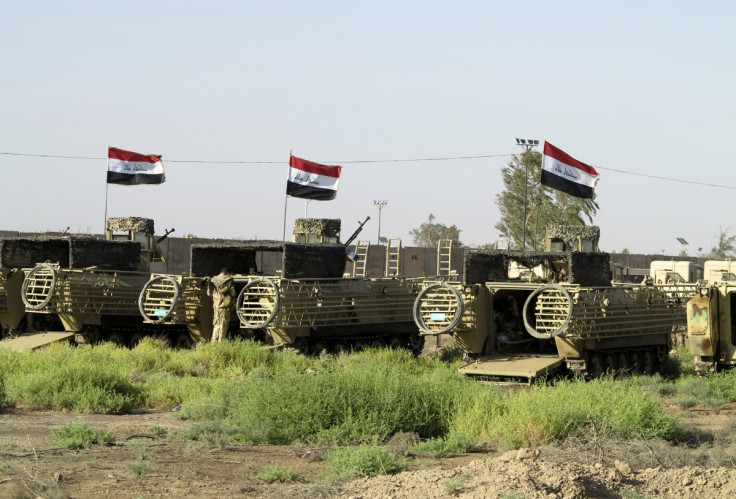Iraqi Army Drives Sunni Rebels from Central Tikrit but Maliki's Days at Helm Numbered

The Iraqi army has retaken the northern city of Tikrit from Sunni rebels following a massive offensive, the state media has reported.
The counter-offensive that drove fighters from the Islamic State in Iraq and the Levant (Isis) from former dictator Saddam Hussein's hometown was presumably supported by US military advisers.
Iraqi state television said the army took control of the governor's headquarters and other government buildings in Tikrit. The army surrounded the rebels from all four sides of the city, pounding the Sunni militants, who had captured the city on 11 June, with firing from tanks and helicopter gunships.
The state media said at least 60 fighters from the Isis, including senior commanders, were killed in the attack.
A spokesman for the Sunni militia confirmed heavy fighting was going on around Tikrit but claimed the army's attack had failed, BBC reported.
The New York Times said independent sources could confirm that the army offensive pushed Isis fighters from key government buildings in the centre of Tikrit as well as from important roads and strategic positions.
"Reports and surveillance show that Isis leaders have ordered a retreat," Gen Qassim Atta, a spokesman for the Iraqi military, told the NYT.
Citing military sources, BBC said the army's counter-offensive, the most successful yet on the surging Sunni militants, was co-ordinated with American military advisers.
According to Reuters, the army's move to recapture the key northern city was planned days in advance.
While snipers from Iraqi special forces had been airdropped inside Tikrit University days on Thursday, more troops landed in key pockets inside the city.
The government army's move to Tikrit from the southern town of Samarra, where the militants' advance had been checked earlier, was aided by some Sunni tribes and Shia militias.
Meanwhile, Grand Ayatollah Ali al-Sistani, the spiritual leader of Shiites in Iraq, asked political parties to arrive at a consensus over who would be the next prime minister before the newly elected parliament meets, piling pressure on Nouri al-Maliki, who is looking for a third term in office.
In signs that the days of Maliki at the top of a divisive administration in Baghdad are numbered, Saudi King Abdullah told US Secretary of State John Kerry that he would use his influence over Iraqi Sunni leaders to agree a power- sharing deal that can go a long way in defusing the current crisis that threatens to rip the country apart on sectarian lines.
© Copyright IBTimes 2025. All rights reserved.






















